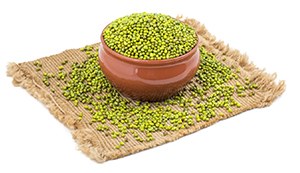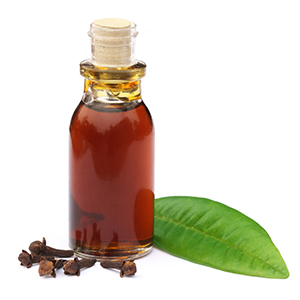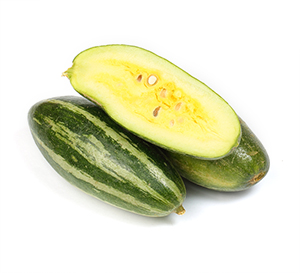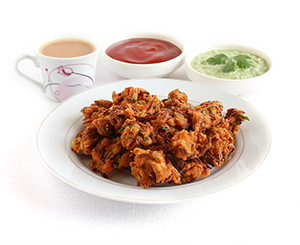
As the season changes, we get flooded with monsoon health queries on how to take care of health. With monsoon around the corner, here’s a list of monsoon health queries that we recently received from our followers.
Q1. Is there a list of nutrition-related do’s and don’ts that we must follow during the monsoons at home?
Yes, most definitely. We need to be careful about the food we eat and the water we drink during monsoon. During monsoon, our digestion gets weakened and the dosha, which is most likely to go out of balance is vaata. Vaata aggravation leads to gas formation and indigestion, which most of us unknowingly experience during monsoon. So, follow these do’s and don’ts and enjoy the rains without worrying about any ailments.
- Wash all fruits and vegetables thoroughly, particularly leafy ones and cauliflower. They not only contain larvae and worms but also collect dirt from the streets.
- Eat a moderate quantity of food, as the body finds it hard to digest food during this season.
- Drink warm beverages; add mint or ginger or dry ginger powder to tea.
- Moong dal is easy to digest and should be the dal of choice for the season.
- Garlic, pepper, ginger, asafoetida, sonth, turmeric, coriander and jeera enhance your body’s digestive power and improve immunity.
- Non-vegetarians should go in for lighter meat preparations like soups and stews rather than heavy curries.
- Avoid eating food straight out of the fridge. Fresh foods are the best, but if you like to store cooked food in the fridge, heat it gradually and thoroughly before eating.
- It is a known fact that we need to drink only boiled and filtered water, but care should be taken that the water is consumed within 24 hours of boiling.
Read more: Diet for Monsoon for Office Goers
 Q2. What kind of fruits and vegetables would you prescribe?
Q2. What kind of fruits and vegetables would you prescribe?
The cardinal rule about eating during the monsoon is that you should never eat when you are not hungry. You can eat something in the winter just because you find it appetising. Doing this in monsoon is an invitation to indigestion and accompanying illnesses.
- Vegetables recommended during the rains are the non-leafy ones such as turi, dudhi, parwal, suran, gavaar, tinda and karela.
- It is better to stick to seasonal fruits because non-seasonal ones tend to get infested with worms during monsoons. Pomegranates, mangoes, bananas, apples, leeches and cherries are ideal for this season.
Q3. How can I protect myself from monsoon-related ailments like malaria and jaundice?
During monsoon, malaria and jaundice are common due to stagnant water and contaminant food. Use mosquito repellents, creams and nets, if you stay in mosquito-prone sites or places with stagnant water. Wash vegetables with clean water and steam them well to kill germs. Avoid eating uncooked food and salads unless it is organic and clean well. Do not allow kids to play in stagnant water-filled puddles. Dry your feet and webs with a soft dry cloth whenever they are wet. If you are prone to mucus and cold try freshly prepared radish juice. It is the best remedy for cold. A pinch each of pipli (available at most ayurvedic shops) and rock salt mixed in warm water reduces mucous formation.
Q4. What foods should I be wary of if I am eating in restaurants?
- Avoid eating chaats, pakoras, snacks, cut fruits and juices from roadside vendors. If you are eating out, make sure the place you have chosen conforms to some basic standards of quality and hygiene or you can acquire serious infections like viral fever, diarrhoea and other water-borne diseases.
- Raw vegetables are to be avoided during monsoon as the uncooked foods can contain various disease agents.
- Avoid fried food and large meals, purely because they bring about indigestion.
Q5: I frequently suffer from cold and flu, and feel very low in energy. Suggest some remedies.
This is one of the most common monsoon health queries. All of us fall sick on certain occasions. However, the severity and duration of the illness are different for everyone. Our bodies are constantly attacked by toxins. Every day our immune system must deal with polluted air, processed food and contaminated water. It provides soldiers to your body to be able to deal with the attack of pollutants in your environment. A frail immune system escalates the chances of falling sick.
Your symptoms of frequent exposure to infections and low energy are typical of low immunity. Factors like stress, improper nutrition, chronic disease, poor liver function, underactive thyroid and toxins impact our immunity. Despite the constant attack by toxins, there are many natural ways to boost the immune system. Here are a few recommendations:
Turmeric: Haldi is an excellent preventive remedy for monsoon-related infection. Take 1/2 tsp of turmeric powder mixed with 1/2 tsp of honey twice a day to prevent a cold. It also helps relieve bloat and indigestion, which usually increase in monsoons. Haldi also boosts immunity. You may also drink fresh turmeric juice. Simply blend the fresh turmeric with a little water, strain it and drink 30 ml of this freshly prepared turmeric juice once a day to boost immunity.
Ginger: It is valuable for immunity, according to Ayurveda. Include raw ginger in your regular diet. If you suffer from hyperacidity, use it cautiously. You can use ginger tea as a remedy against flu, colds, sore throat, nasal congestion and sinus pain. Being heat-producing and anti-clotting, it should be consumed in small quantities.
Honey: Constant use of honey strengthens the white blood cells to fight bacterial and viral diseases. If you have a cold, cough and congestion – mix 2 tsp of honey with an equal quantity of ginger juice and consume it frequently.
Cumin seeds: They are rich in antioxidants like eugenol, limonene and hence boost immunity. Cumin seeds are rich in iron, Vitamins A and C, which boost the immune system. You can also use black cumin seeds as a natural medicine to treat asthma.
 Clove oil: It has a cooling and anti-inflammatory effect, thereby clears the nasal passage. This expectorant is useful in various respiratory disorders, including cough, cold, bronchitis, asthma, sinusitis and tuberculosis. Chewing a clove bud eases sore throats.
Clove oil: It has a cooling and anti-inflammatory effect, thereby clears the nasal passage. This expectorant is useful in various respiratory disorders, including cough, cold, bronchitis, asthma, sinusitis and tuberculosis. Chewing a clove bud eases sore throats.
Ajwain: In case of an acute attack of the common cold or migraine headache, put ajwain powder in a thin cloth and smell it frequently. Also, drinking hot water after chewing ajwain reduces phlegm and cough. If you have a cold, drink water boiled with 3 gms of ajwain and 3 gms of cinnamon bark thrice a day for a few days. This helps reduce the discomfort of cold to a great extent.
Kalonji (Black onion seeds): These are effective in treating diseases caused by a weakened immune system. The production of immune cells known as neutrophils accelerates your immunity. Kalonji seeds are a rich source of essential fatty acids i.e. linoleic acid. Linolenic acid is an important constituent to produce immune cells, and for the growth and maintenance of the nervous system. You can add onion seeds to vegetables, dals and chutneys.
If you have any monsoon health queries, write to us at healthnewsletter@health-total.com. To speak to our experts, call toll-free 1800-891-8131.
Have a healthy and safe monsoon.
 Q2. What kind of fruits and vegetables would you prescribe?
Q2. What kind of fruits and vegetables would you prescribe?
